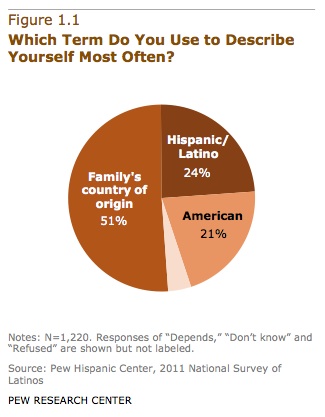From Mexifornia comes news that Hispanic children get an early start on a
dropout future based on their parents disinterest in speaking and reading to their toddlers. According to researchers, it is an attitude of Latino culture that says the home is not a place for education.
Meanwhile, the administration is organizing free flights from Central America for illegal alien kiddies who will grow up to be grateful Democrats, it believes.
Gov’t program would fly in Central American children to join parents in US, Fox News, April 4, 2015
Images of unaccompanied children flooding across the U.S.-Mexico border defined the immigration crisis last summer.
Now, the federal government is intervening so these children won’t have to make that trek -– they’ll get to fly into the U.S. instead. For free.
A new State Department and Department of Homeland Security program seeks to stop the surge of immigrant children from Honduras, Guatemala, and El Salvador at the southern border by giving their U.S.-based parents the option to apply to have their kids picked up and put on a plane, without paying a penny. [. . .]
Unfortunately, Hispanics are the fastest-growing minority and are failing to assimilate to American standards of education. A 2014 Pew report titled More Hispanics, blacks enrolling in college, but lag in bachelor’s degrees found that in 2012, Hispanics accounted for just 9 percent of young adults (ages 25 to 29) with bachelor’s degrees compared with whites being 69 percent of the total.
![]() As the Pew graph at right shows, very few hispanics self-identify as American so its not surprising they dont value American standards of educational excellence.
As the Pew graph at right shows, very few hispanics self-identify as American so its not surprising they dont value American standards of educational excellence.
Literacy gap between Latino and white toddlers starts early, study shows, Los Angeles Times, April 2, 2015
Latino toddlers whose language comprehension is roughly similar to white peers at 9 months old fall significantly behind by the time they are 2, according to a study released Thursday.
The UC Berkeley study found that four-fifths of the nations Mexican American toddlers lagged three to five months behind whites in preliteracy skills, oral language and familiarity with print materials.
Although earlier studies have shown that Latino children are raised with emotional warmth and develop social skills on par with others when they enter kindergarten, the new research found they are not receiving sufficient language and literacy skills at home, said Bruce Fuller, a UC Berkeley professor of education and public policy and co-author of the study.
For many Latinos, the home is a nurturing and supportive environment, but its not necessarily infused with rich language and cognitive challenges, Fuller said. Being warm and fuzzy may lead to well-behaved youngsters but it doesnt necessarily advance a young childs cognitive agility.
Mothers of toddlers who fell behind were more likely to be foreign-born, low-income and less educated. They were also less likely to read to their children daily or give them as much praise and encouragement as those whose children kept pace with white peers.
The study found, for instance, that only 18% of Mexican American mothers who spoke Spanish at home read to their children daily, compared with 59% of white mothers. Among Mexican American mothers who spoke English at home, 28% read daily.
In addition, other research has found that parents with more education limit television, ask their children more questions, give them more opportunities to articulate their feelings and have them show off their skills counting to 10 for grandma, for instance.
Latino mothers also have been found to issue more commands set the table, turn off the TV which may stem from the need to maintain order in larger families, Fuller said. And Latino mothers tend to believe that children should wait for kindergarten to learn to read, compared with white mothers who see age 2 as the appropriate age for such learning, according to a UCLA study. Fuller said that difference may stem from the traditional Mexican respect for teachers.
Less than half of all Latino 4-year-olds attend preschool, compared with 70% of whites.
Among Mexican-Americans, greater growth was recorded among toddlers whose mothers worked outside the home than those who didnt, even controlling for parent education levels. Fuller said the reason is still a bit mysterious but may be connected to greater acculturation and exposure to different parenting practices among working mothers.
The study tracked a nationally representative sample of 4,550 children from birth to 30 months.
The findings underscore the need for widespread parent education and renewal of federal funding for such programs as home visits to train families on effective parenting practices, Fuller said. Most funding is focused on preschool but weve got to start earlier because the disparities open up far sooner, he said.
The good news is that we know what works, he said. The question is how do we get mom and dad to understand the need to nurture stronger language skills by age 1 and 2 and that parents play a large role in that development?



 As the Pew graph at right shows, very few hispanics self-identify as American so its not surprising they dont value American standards of educational excellence.
As the Pew graph at right shows, very few hispanics self-identify as American so its not surprising they dont value American standards of educational excellence.








